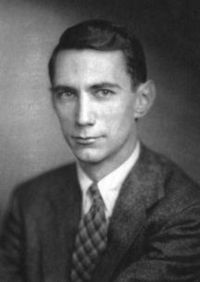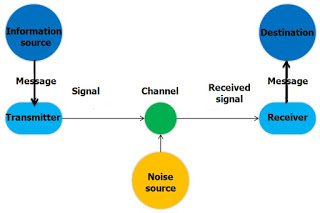All Things
- About Consciousness
Mirror Self-Recognition (Steve Jurvetson, Menlo Park)One of the most serious difficulties faced by materialists is the problem of consciousness, sometimes called self-awareness, the awareness I have of being myself rather than another person or object,...
- The Phenomenon Of Man
Pierre Teilhard de ChardinWe know from experience that man has a mind and consciousness. It is also evident that animals seem to have more mental activities the closer they are to us. Thus, mammals have more minds that reptiles, reptiles more than fish,...
- On Intelligence
In his book On intelligence Jeff Hawkins writes this:Francis Crick wrote a book about brains called The astonishing hypothesis. The astonishing hypothesis was simply that the mind is the creation of the cells in the brain. There is nothing else, no magic,...
- The V>c World
Albert EinsteinIn 1967, Gerald Feinberg game the name tachyon(from the Greek tacus, fast) to hypothetical particles whose possible existence had been proposed five years before by other researchers. Tachyons would have a unique property: they always move...
- Are We About To Become Immortal?
Arthur C. ClarkeIn 1965 Arthur C. Clarke published a short story, titled Dial F for Frankenstein, later published in the collection The wind from the sun: stories of the space age. In that story Clarke proposed the following scenario:When all global telephone...
All Things
Determinism versus freedom (2nd part)
 |
| Claude Elwood Shannon |
Among the arguments used by deterministic neuroscientists to prove that human freedom does not exist, I?ll mention two:
- Brain injuries and mental disorders affect the mind and self-consciousness in various ways, depending on which part of the brain is affected. In the worst case, self-consciousness can be completely lost. Hence they deduce that self-consciousness is an epiphenomenon that can provide some evolutionary advantages, but at bottom is an illusion without objective reality.
- Moreover, mental states of all kinds (even mystical experiences) can be caused by applying electromagnetic stimuli to different parts of the brain. Hence they deduce that mental states depend only on the electrical state of our neurons, while mystical experiences, whatever their origin, are all hallucinatory. I have discussed this in another article.
In this situation, I have thought about a suggestive parallel which leads me to wonder if these materialistic arguments really have any weight, or are just based on a vacuum.
According to Shannon?s theory of information, a communications system consists of the following components:
 |
| Communications system |
- An information source that generates a message.
- A transmitter, which encodes the message by translating it into an equivalent format, usually an electromagnetic signal.
- A communication channel, through which the signal is transmitted to another point in space. On its way, the signal can be altered by the inclusion of noise.
- A receiver which decodes the message, by translating it usually to the same format as the starting message. Here it is possible to perform operations to minimize the effects of noise and recompose the original message.
- A recipient, who receives the message at the end of the process.
Apart from the noise, a communication system as described here can be subject to many phenomena that distort the received message in different ways. Consider just two:
- Different faults in the receiver cause different distortions on the received message. In the worst case, the message may be lost completely. In less severe cases, it may become unrecognizable, in whole or in part.
- Through the receiver, by means of electromagnetic methods, it is possible to send to the recipient spurious messages that do not come from any source.
If a reasonable follower of the deterministic ideology would apply to a communication system as the one described here the same reductionist reasoning used to justify the claim that freedom does not exist and consciousness is an illusion, the following conclusions would be reached:
- The source or origin of the information is only an illusion produced by the structure of the receptor. Only the receiver exists, and the received messages are spontaneously generated or induced in the receiver.
- From the fact that it is possible to introduce spurious messages on the receiver by means of electromagnetic manipulations, it follows that all the messages we receive are equally spurious.
I have never heard any materialistic philosopher hold something like this. Why should these two systems be treated in such a different way?
It is true that, in the case of a communications system, we know from experience that the source of information and the messages sent to us really exist. But then, we also know from experience that we are self-conscious, and some people have felt mystical experiences without having received any stimulation. Why in one case our own experience is admitted and in the other it is denied? I think the analogy just offered significantly reduces the probability that the reductionist ideology is true.
Finally, as in the previous article, I?ll end with a question to the disseminators of the deterministic ideology:
Why do you insist on writing books to spread your materialist ideology? Do you intend to convince others? But if what you say is true, those people cannot help thinking how they think, because they are not free. So, why waste time and effort? Moreover, even if they change their minds after reading your book, this change would not be due to your efforts, but to the state of their brain. Since you are still writing, I can only conclude that, at bottom, whatever you say, you do believe in our freedom and act accordingly.
The same post in Spanish
Manuel Alfonseca
- About Consciousness
Mirror Self-Recognition (Steve Jurvetson, Menlo Park)One of the most serious difficulties faced by materialists is the problem of consciousness, sometimes called self-awareness, the awareness I have of being myself rather than another person or object,...
- The Phenomenon Of Man
Pierre Teilhard de ChardinWe know from experience that man has a mind and consciousness. It is also evident that animals seem to have more mental activities the closer they are to us. Thus, mammals have more minds that reptiles, reptiles more than fish,...
- On Intelligence
In his book On intelligence Jeff Hawkins writes this:Francis Crick wrote a book about brains called The astonishing hypothesis. The astonishing hypothesis was simply that the mind is the creation of the cells in the brain. There is nothing else, no magic,...
- The V>c World
Albert EinsteinIn 1967, Gerald Feinberg game the name tachyon(from the Greek tacus, fast) to hypothetical particles whose possible existence had been proposed five years before by other researchers. Tachyons would have a unique property: they always move...
- Are We About To Become Immortal?
Arthur C. ClarkeIn 1965 Arthur C. Clarke published a short story, titled Dial F for Frankenstein, later published in the collection The wind from the sun: stories of the space age. In that story Clarke proposed the following scenario:When all global telephone...
